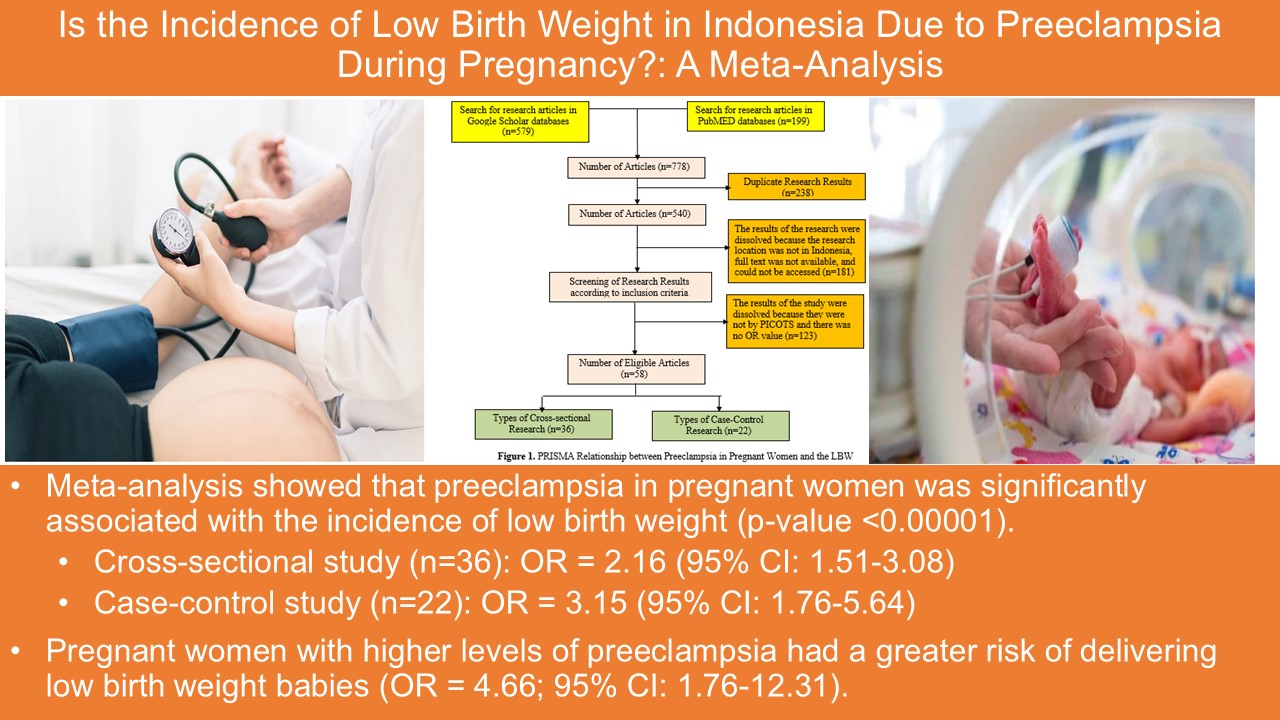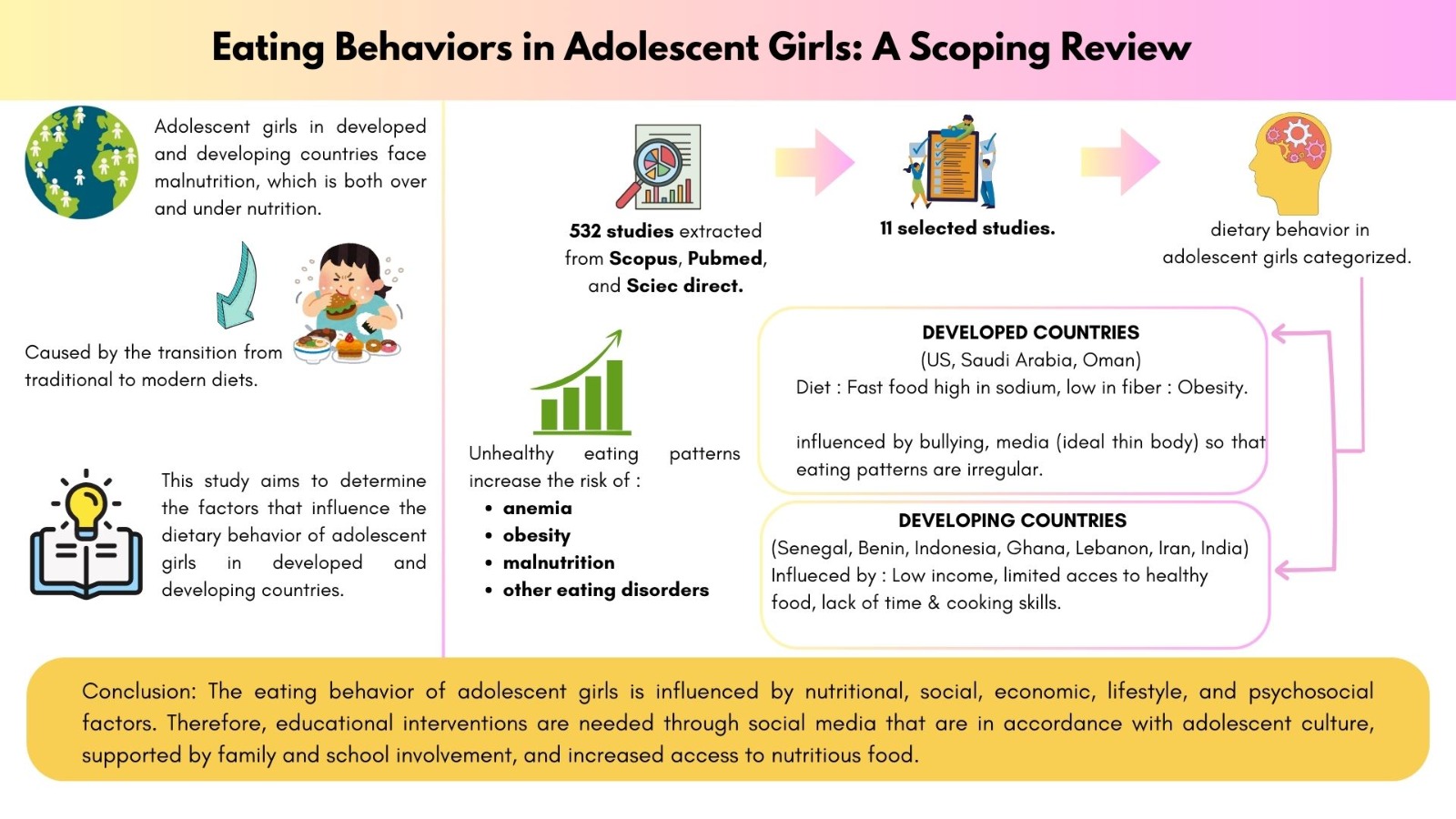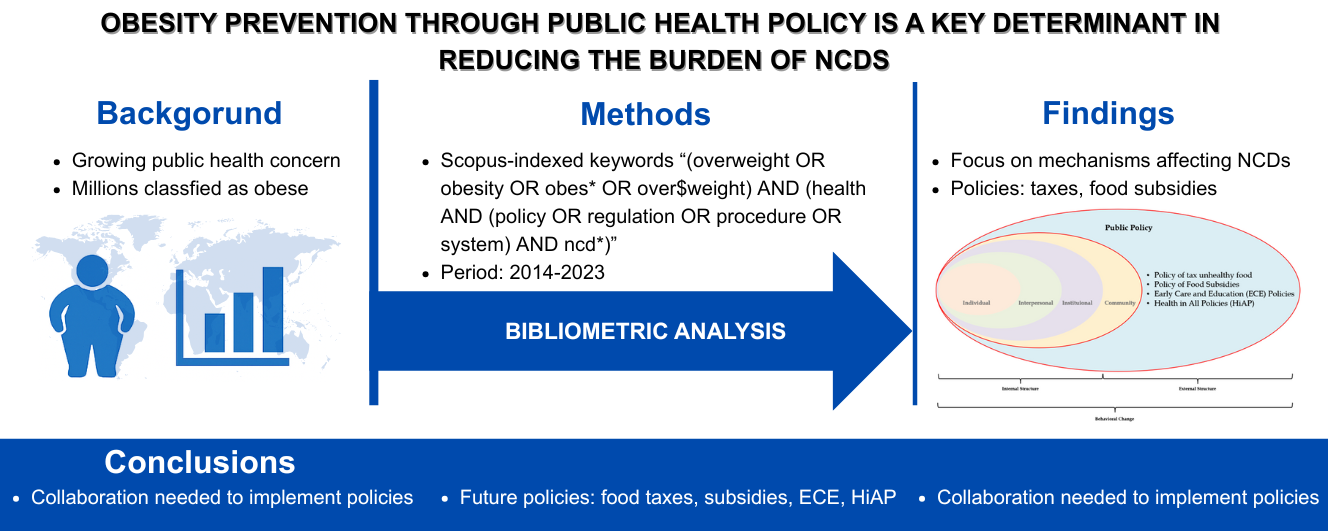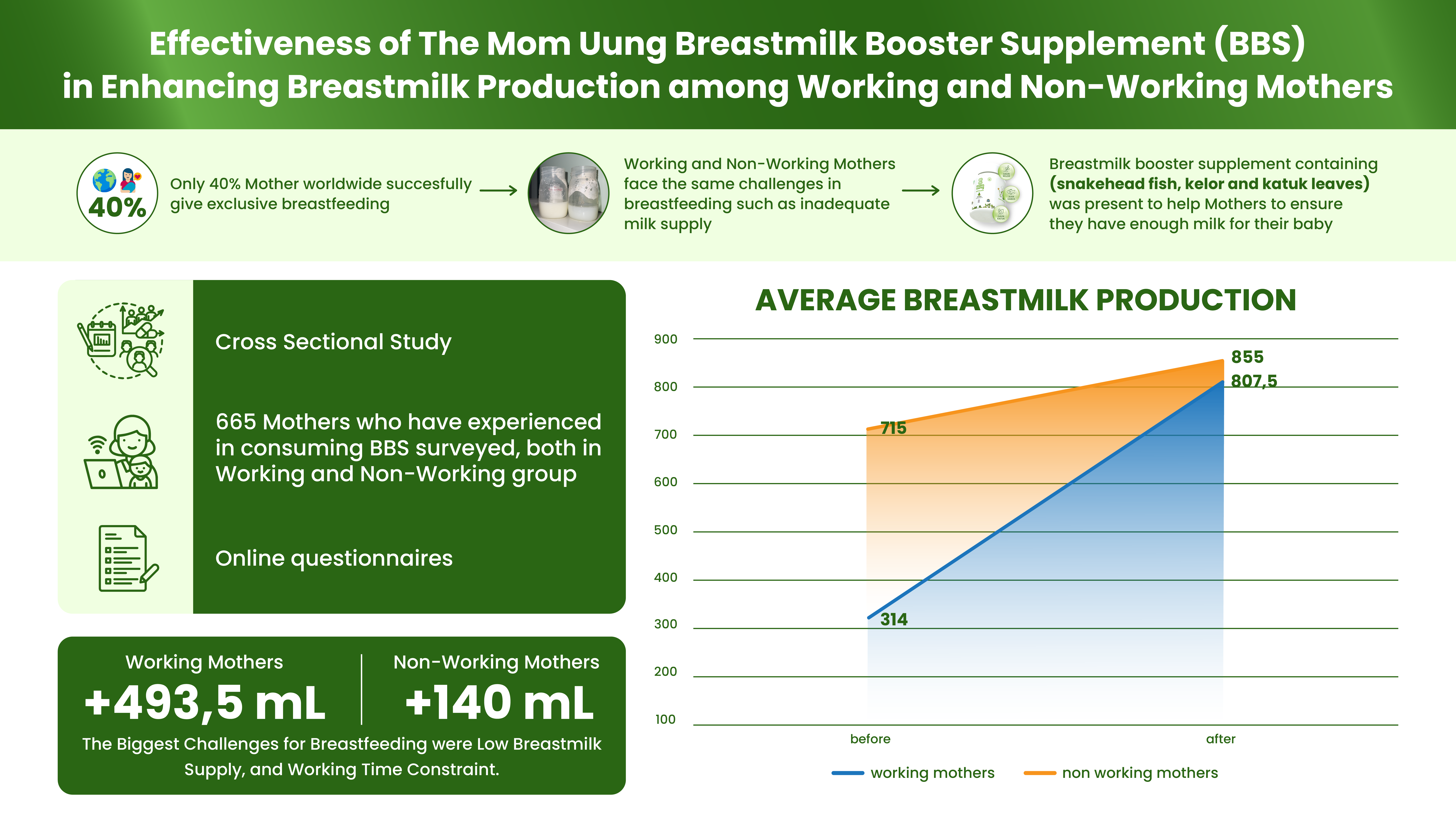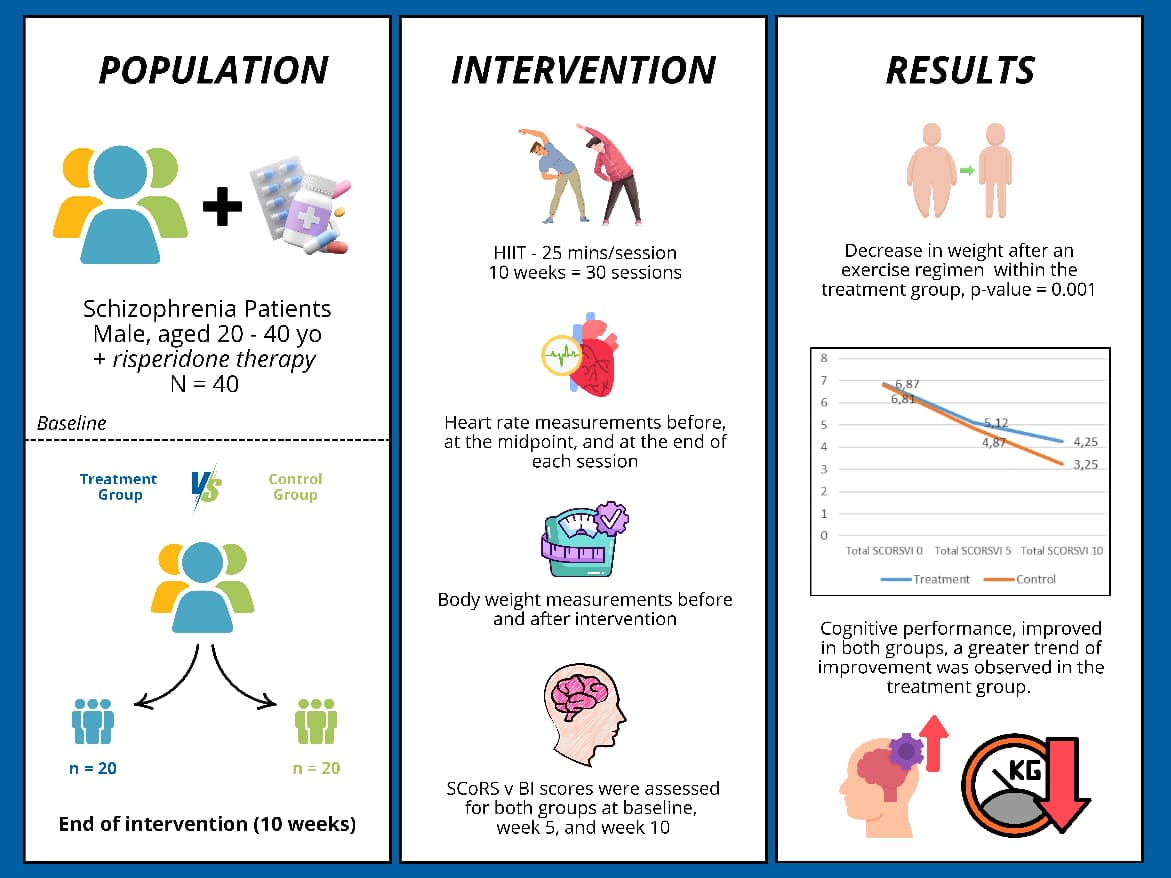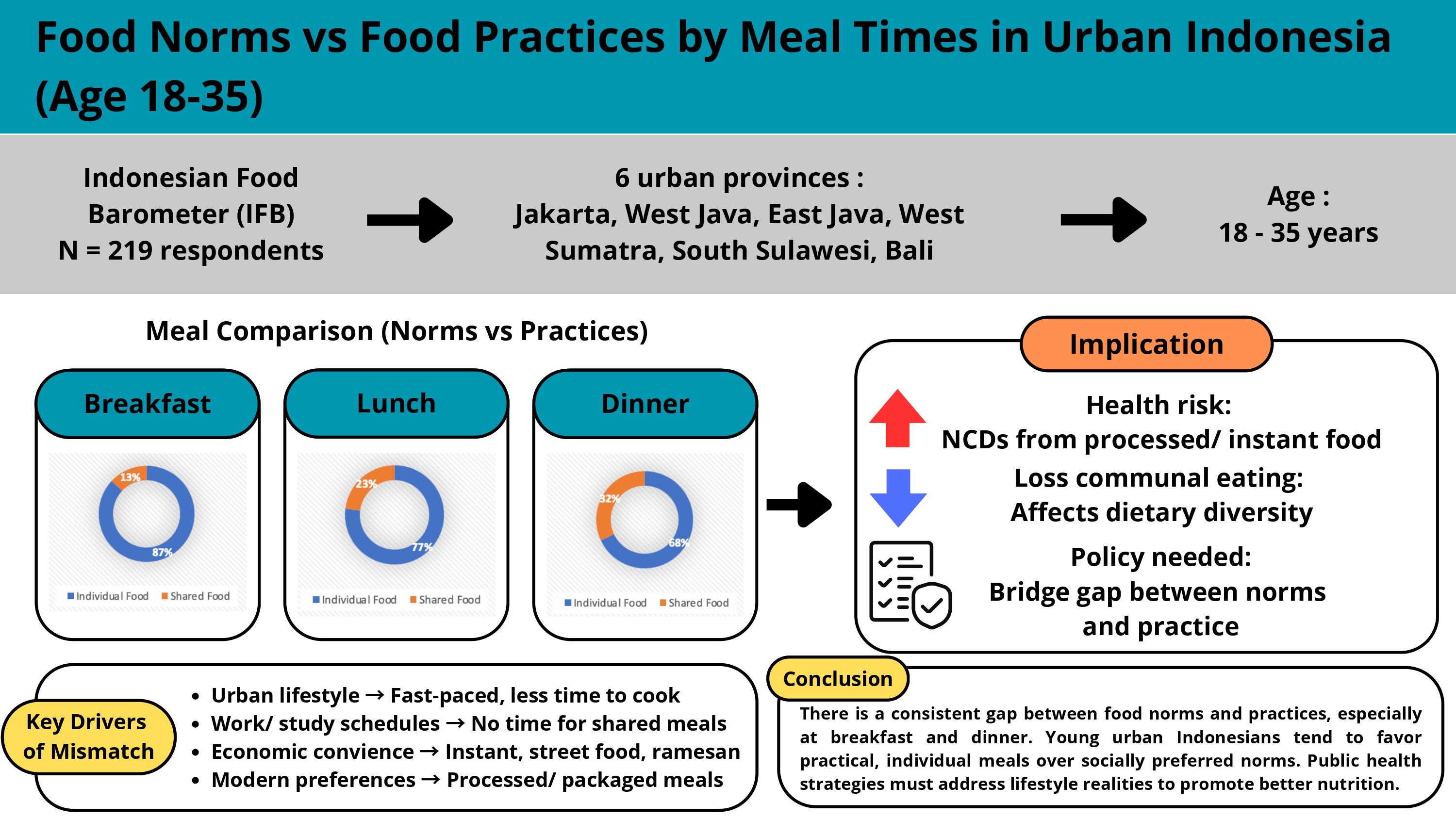The Effect of Health Belief Model-Based Interventions to Increase Diet Quality of Adolescents
The adolescent dietary quality in Indonesia remains subpar, with a substantial proportion of ≤ 95% of adolescents not consuming enough or any fruits and vegetables. The main objective of this research was to evaluate the impact of nutrition education programs based on the Health Belief Model (HBM) and conventional methods on the knowledge, attitudes, and eating habits of adolescents, with the ultimate goal of promoting healthy dietary practices. This study was a quasi-experimental study with a non-randomized control group pre and post-test design to 78 adolescents 13-15 years who met the inclusion criteria at the Bogor Regency Junior High School. Diet quality data was collected using 2x24 hours of food recall. The knowledge, attitude, and health belief model questionnaires that had been collected through questionnaires were then analyzed using SPSS version 25.0 using the Wilcoxon and paired t-test. There was no change in the quality diet in the health belief model and control groups with p-value>0.05. However, there was an increase in knowledge and attitude in both groups with a p-value<0.05. Only three constructs that improved were vulnerability, seriousness and self-efficacy with p-value < 0.05. Perceived benefits, barriers and action cues did not increase with p-value > 0.05. Health belief model nutrition education methods can improve knowledge and attitude, but not give a change in behavior. Health belief model nutrition education method can improve knowledge and attitudes, but not changes in eating behavior. Further health belief model-based nutrition education programs are needed to increase motivation and willingness to act.
Agustina R, Nadiya K, El Andini A, Setianingsih AA, Sadariskar AA, Prafiantini E, Wirawan F, Karyadi E, Raut MK. 2020. Associations of meal patterning, dietary quality and diversity with anemia and overweight-obesity among Indonesian schoolgoing adolescent girls in West Java. PLoS One. 15(4):1–19. doi:10.1371/journal.pone.0231519.
Al-Jawaldeh A, Taktouk M, Nasreddine L. 2020. Food Consumption Pattern and Nutrient Intakes of Children and Adolescent in the Eastern Mediterranean Region: A Call for Policy Action. Nutrients. 12(11):1–28. doi:10.3390/nu12113345.
Almatsier S. 2009. Prinsip dasar ilmu gizi. PT. Gramedia Pustaka Utama, editor. Jakarta.
Amalia NN, Filla Fithra D, Aryu C, Choirun N. 2023. Gizi indonesia. 46(1):43–56. doi:10.36457/gizindo.v46i1.761.
Amaliah I, David W, Ardiansyah A. 2019. Perception of Millennial Generation Toward Functional Food in Indonesia. J Funct Food Nutraceutical. 1(1):31–40. doi:10.33555/jffn.v1i1.11.
Amrin AP, Hardinsyah H, Dwiriani CM. 2014. Alternatif Indeks Gizi Seimbang Untuk Penilaian Mutu Gizi Konsumsi Pangan Pria Dewasa Indonesia. J Gizi dan Pangan. 8(3):167. doi:10.25182/jgp.2013.8.3.167-176.
Arnelia AH. 2015. Perilaku Makan Khas Remaja. Reksa, editor. Jakarta.
Azzahra A, Rizqi ER, Lasepa W. 2023. ASUPAN ENERGI DAN KUALITAS DIET DENGAN KEJADIAN THINNESS PADA SISWA SMAN 1 KAMPAR. 2(3):241–249.
Balitbangkes. 2018. Riset Kesehatan Dasar Tahun 2018. Volume ke-53. RI KK, editor. Jakarta: Badan Penelitian dan Pengembangan Kesehatan.
Becker MH. 1974. The health belief model and personal health behavior. Ed ke-2. Health education monographs, editor. New York.
Devie L. 2020. Hubungan Kualitas Diet Dengan Status Gizi Remaja di SMP Negeri 2 Bogor. Institut Pertanian Bogor.
Dewi NU. 2023. Peningkatan Literasi Gizi dan Dampaknya Pada Kualitas Diet Remaja Pada Rumah Tangga Rawan Pangan Di Wilayah Pascabencana. Institut Pertanian Bogor.
Dieny FF, Setyaningsih RF, Tsani AFA. 2021. Kualitas diet berhubungan dengan defisiensi besi pada atlet remaja putri Diet quality is related to iron deficiency among adolescent female athletes Abstrak Pendahuluan. 6(1):48–57.
Dumitrescu C, Iacob CI. 2021. Predicting Healthy Eating: Conscientiousness versus the Health Belief Model. Rom J Appl Psychol. 23(1):18–24. doi:10.24913/rjap.23.1.03.
Fathi A, Sharifirad G, Gharlipour Z, Hakimelahi J, Mohebi S. 2017. Effects Of A Nutrition Education Intervention Designed Based On The Health Belief Model (HBM) On Reducing The Consumption Of Unhealthy Snacks In The Sixth Grade Primary School Girls. Int J Pediatr. 5(2):4361–4370. doi:10.22038/ijp.2016.7567.
Glanz K, K. Rimer B, Viswanath K. 2008. Health Behavior adn Health Education. Wiley J, editor. San Francisco.
Hupnau RE. 2019. Analisis Faktor Yang Berhubungan Dengan Perilaku Ibu Dalam Pemenuhan Kebutuhan Nutrisi Pada Anak Usia Toddler Berdasarkan Teori Health Belief Model. Volume ke-5. Universitas Airlangga.
Insani HM. 2019. Pengaruh intervensi pendidikan gizi terhadap pengetahuan gizi, kebiasaan makan dan aktivitas fisik pada remaja [tesis].
Irnani, H. Sinaga T. 2017. In search of understanding: The case for constructivist classrooms. Virginia: Association for Supervision and Curriculum Development. J Gizi Indones (The Indones J Nutr. 26(2):58–64. doi:10.32382/mgp.v26i2.1231.
Kemenkes RI. 2014. Pedoman Gizi Seimbang. Kementerian Kesehatan RI, editor. Jakarta (ID). https://pergizi.org/pedoman-gizi-seimbang-2014-terbaru/.
Kementan RI. 2021. Analisis Ketahanan Pangan Tahun 2022. Pertanian K, editor. Jakarta.
Keshani P, Kaveh MH, Faghih S, Salehi M. 2019. Improving Diet Quality Among Adolescents, Using Health Belief Model in a Collaborative Learning Context: A Randomized Field Trial Study. Health Educ Res. 34(3):279–288. doi:10.1093/her/cyz009.
Khomsan A. 2021. Perubahan Perilaku Gizi. Press I, editor. Bogor.
Khomsan IA. 2000. Teknik pengukuran pengetahuan gizi.
Kusumawati D. 2019. Pengaruh Intervensi Gizi Seimbang terhadap Perilaku Gizi, Status Gizi, dan Status Hidrasi Santri Pondok Pesantren Darusalam Bogor. IPB University. https://repository.ipb.ac.id/handle/123456789/97832.
Medeiros G, Azevedo K, Garcia D, Segundo VO, Mata Á. 2020. Effect of School-Based Food And Nutrition Education Interventions on The Food Consumption of Adolescents : a systematic review . J Environ Res Public Heal., siap terbit.
Noorbakhsh A, Mostafavi F, Shahnazi H. 2017. Effects of the educational intervention on some health belief model constructs regarding the prevention of obesity in students. Int J Pediatr. 5(8):5561–5570. doi:10.22038/ijp.2017.24632.2077.
Notoatmodjo. 2010. Pendidikan dan Perilaku Kesehatan. Jakarta: PT. Rineka Cipta.
Qibtiyah M, Rosidati C, Siregar MH. 2021. Perilaku Konsumsi Buah dan Sayur Pada Remaja. J Gizi Kerja dan Produkt. 2(2):51. doi:10.52742/jgkp.v2i2.12760.
Rahmawati,. Hardinsyah R. 2015. Pengembangan Indeks Gizi Seimbang Untuk Menilai Kualitas Konsumsi Pangan Remaja (13-15 Tahun) Di Indonesia. 11 September.
Saghafi-Asl M, Aliasgharzadeh S, Asghari-Jafarabadi M. 2020. Factors influencing weight management behavior among college students: An application of the Health Belief Model. PLoS One. 15(2):1–15. doi:10.1371/journal.pone.0228058.
Salem GM, Said RM. 2018. Effect of Health Belief Model Based Nutrition Education on Dietary Habits of Secondary School Adolescent Girls in Sharkia Governorate. Egypt J Community Med. 36(3):35–47. doi:10.21608/ejcm.2018.16330.
Sekti RM. 2019. Nutrition Education with Audiovisual Media on Fruit and Consumption of Junior School Students in East Jakarta. J Ilm Kesehat. 1(2):77–88. doi:10.36590/jika.v1i2.15.
Sofianita NI. 2021. Pengembangan Metode Pendidikan Gizi Pada Siswa Dan Orangtua Serta Pengaruhnya Terhadap Perilaku Konsumsi Sayur, Buah Dan Ikan. Disertasi. IPB. https://repository.ipb.ac.id/handle/123456789/108764.
Tamam B. 2022. Tempe: Pangan Lokal Unggul (Superfood) Khasanah Budaya Bangsa. Indones Red Crescent Humanit J. 1(1):41–48. doi:10.56744/irchum.v1i1.14.
Tavakoli HR, Dini-Talatappeh H, Rahmati-Najarkolaei F, Fesharaki MG. 2016. Efficacy of HBM-based dietary education intervention on knowledge, attitude, and behavior in medical students. Iran Red Crescent Med J. 18(11). doi:10.5812/ircmj.23584.
Tzeng SY, Ho TY. 2022. Exploring the Effects of Product Knowledge, Trust, and Distrust in the Health Belief Model to Predict Attitude Toward Dietary Supplements. SAGE Open. 12(1). doi:10.1177/21582440211068855.
Yang Y, He D, Wei L, Wang S, Chen L, Luo M, Mao Z. 2020. Association between diet-related knowledge, attitudes, behaviors, and self-rated health in Chinese adult residents: A population-based study. BMC Public Health. 20(1):1–8. doi:10.1186/s12889-020-08896-y.
Yuksel HS, Şahin FN, Maksimovic N, Drid P, Bianco A. 2020. School-based intervention programs for preventing obesity and promoting physical activity and fitness: A systematic review. Int J Environ Res Public Health. 17(1). doi:10.3390/ijerph17010347.

This work is licensed under a Creative Commons Attribution-NonCommercial-ShareAlike 4.0 International License.
- MEDIA GIZI INDONESIA Journal is the copyright owner of all materials published on this website.
- The formal legal provisions for access to digital articles of this electronic journal are subject to the terms of the Creative Commons Attribution-NonCommercial-ShareAlike license (CC BY-NC-SA 4.0), which means that MEDIA GIZI INDONESIA Journal and readers reserve the right to save, transmit media / format, manage in database, maintain, and publish articles as long as it continues to include the name of the Author.
- Printed and published print and electronic manuscripts are open access for educational, research and library purposes. In addition to these objectives, the editorial board shall not be liable for violations of copyright law.


2.png)















